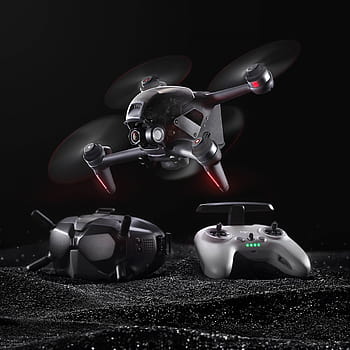Introduction
Drone competitions have taken the world by storm, captivating both enthusiasts and professionals alike with their blend of technology, skill, and adrenaline-pumping action. These events bring together pilots from diverse backgrounds to showcase their flying prowess, creativity, and innovation. In this blog, we’ll explore the exciting world of drone competitions, highlighting the different types of events, the skills required, and the community that surrounds this burgeoning sport.
The Rise of Drone Competitions
Drone competitions have surged in popularity over the past decade, fueled by advancements in drone technology, the availability of affordable racing and freestyle drones, and a growing community of pilots. These events offer a unique platform for individuals to push the boundaries of what drones can do while competing in various formats. Here are some of the key aspects of drone competitions:
- Racing Events: Drone racing competitions involve pilots navigating custom-built courses at high speeds. These events often feature obstacle-filled tracks, and pilots use FPV (First-Person View) goggles to guide their drones through tight turns and challenging maneuvers.
- Freestyle Competitions: Freestyle drone competitions focus on creativity and skill. Pilots choreograph and perform intricate aerial routines, combining flips, rolls, and daring tricks to impress judges and spectators. These events showcase the artistic side of drone piloting.
- Drone Combat: Some competitions involve drones equipped with mechanisms to engage in aerial combat. The goal is to disable or knock opponents out of the sky while keeping your own drone operational.
- Endurance Challenges: Endurance competitions test the longevity and durability of drones. Pilots aim to keep their drones in the air for as long as possible, often requiring strategic battery management and repairs mid-flight.
Skills and Expertise
Participating in drone competitions requires a unique skill set and expertise. Here are some of the skills and knowledge areas that competitive drone pilots must master:
- Piloting Skills: Precise control of the drone is essential, especially in racing and freestyle competitions. Pilots need to navigate complex courses, execute sharp turns, and maintain control under high-speed conditions.
- Technical Knowledge: Understanding drone hardware, software, and flight controllers is crucial. Pilots often customize and fine-tune their drones for optimal performance.
- Creativity: Freestyle competitions demand creativity and a deep understanding of the drone’s capabilities. Pilots must choreograph sequences that captivate judges and spectators.
- Strategic Thinking: In some events, strategic thinking is key. Endurance challenges and combat competitions require pilots to plan and make quick decisions in real-time.
The Drone Community
One of the most remarkable aspects of drone competitions is the sense of community they foster. Enthusiasts, hobbyists, and professionals come together to share knowledge, exchange tips, and support one another. Online forums, social media groups, and local clubs provide platforms for pilots to connect and collaborate. This sense of community encourages skill development and innovation in the world of drones.
Conclusion
Drone competitions offer an exhilarating blend of technology and skill, attracting participants and spectators alike. Whether you’re an aspiring pilot or someone interested in witnessing the excitement, the world of drone competitions has something to offer. From high-speed races to breathtaking freestyle routines, these events showcase the limitless possibilities of drone technology while fostering a tight-knit community passionate about taking flight to new heights.
